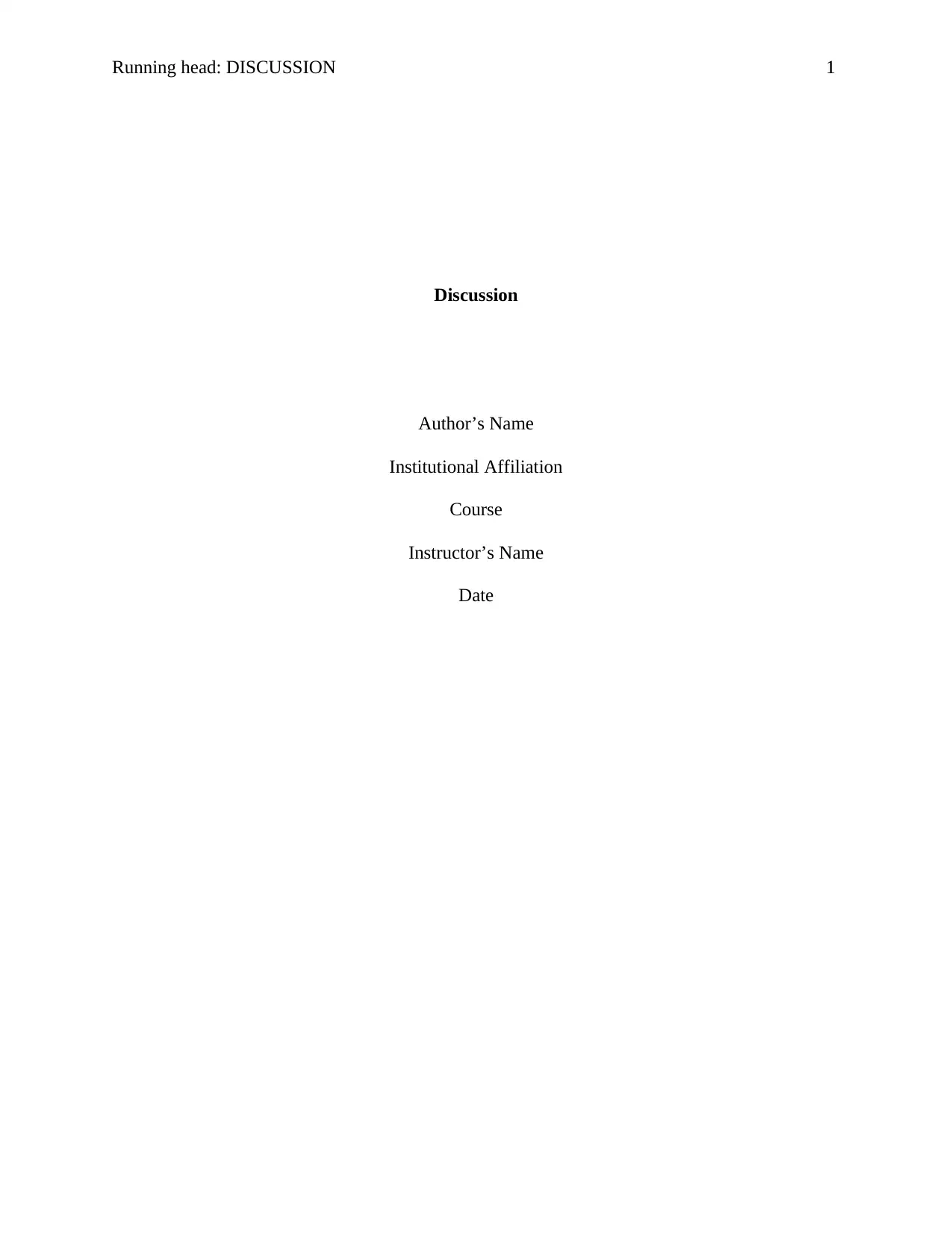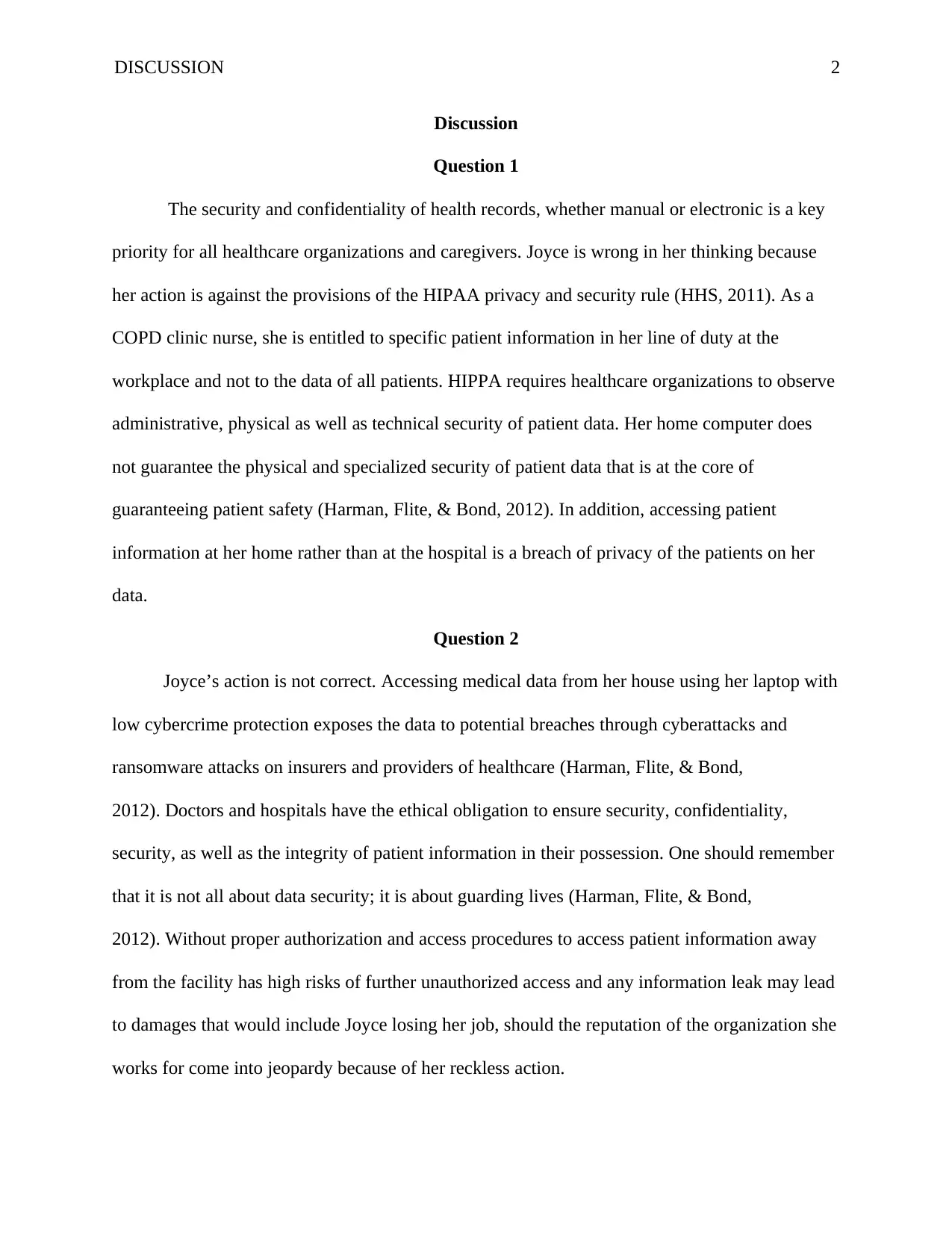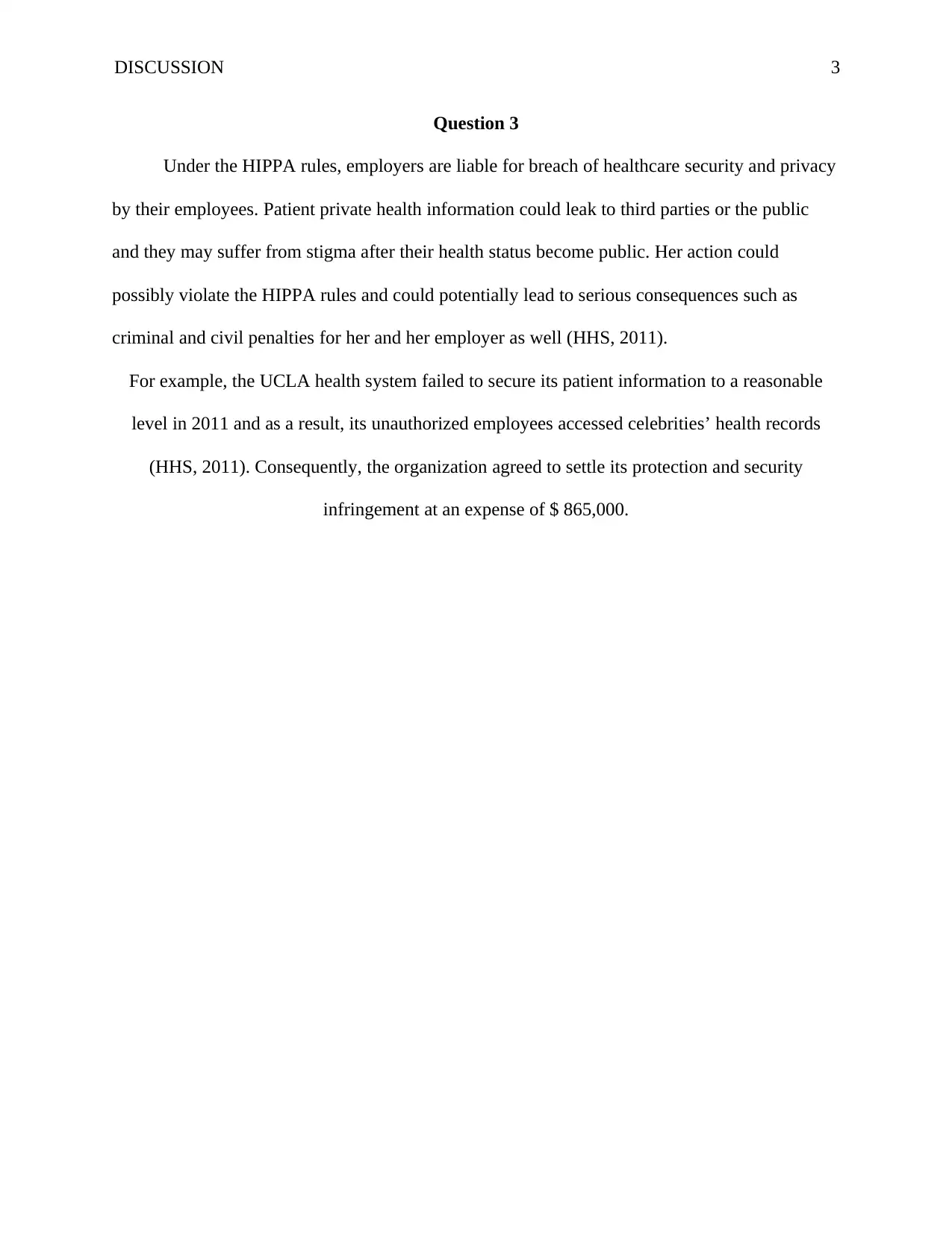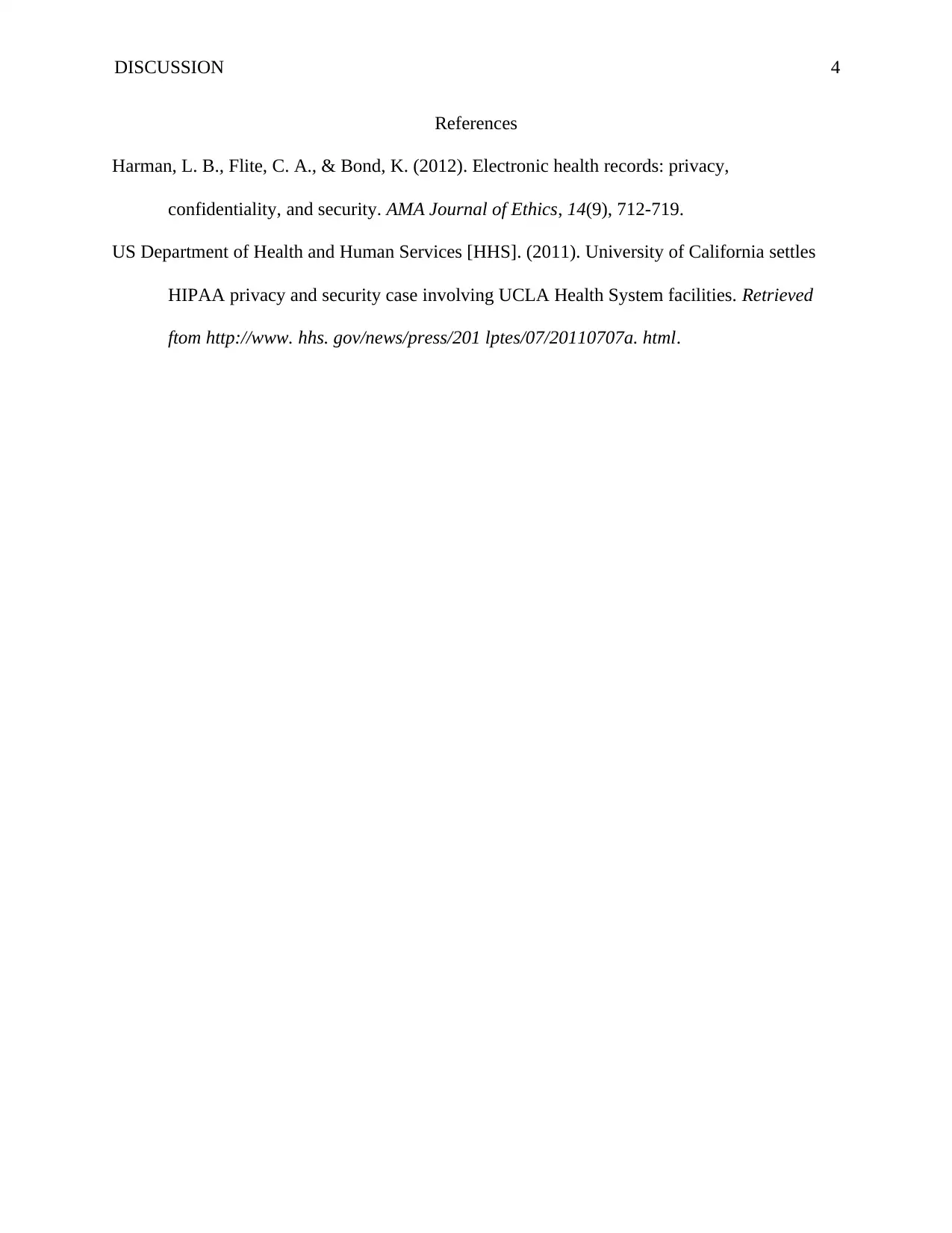Ethical Implications of HIPAA Violations in Healthcare Settings
VerifiedAdded on 2022/08/30
|4
|553
|22
Discussion Board Post
AI Summary
This discussion post analyzes a scenario where a COPD clinic nurse, Joyce, downloads patient information to her home computer for a graduate school assignment, raising concerns about HIPAA violations. The post argues that Joyce is incorrect in her thinking, as her actions breach HIPAA's privacy and security rules by accessing sensitive patient data outside of a secure healthcare environment. It emphasizes the importance of administrative, physical, and technical security measures in protecting patient information. The post highlights the potential risks of cyberattacks and unauthorized access, along with the ethical obligations of healthcare providers to ensure data confidentiality. Furthermore, it discusses the potential consequences for Joyce, the patients, and the clinic, including legal penalties and reputational damage. The post references relevant literature to support its claims, including the HIPAA Privacy and Security Rule and the AMA Journal of Ethics, and a case study of UCLA health system's HIPAA violation.
1 out of 4










![[object Object]](/_next/static/media/star-bottom.7253800d.svg)